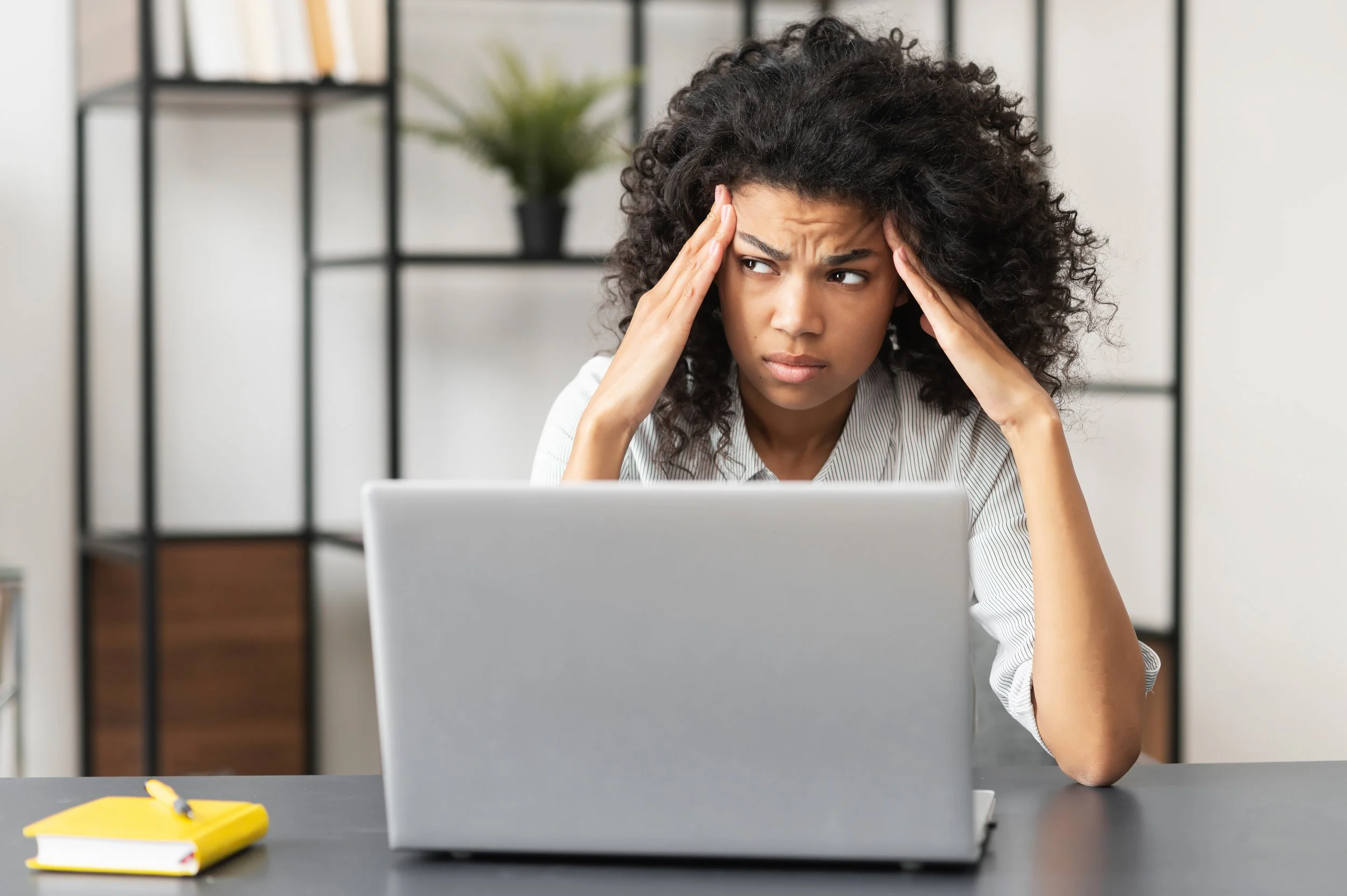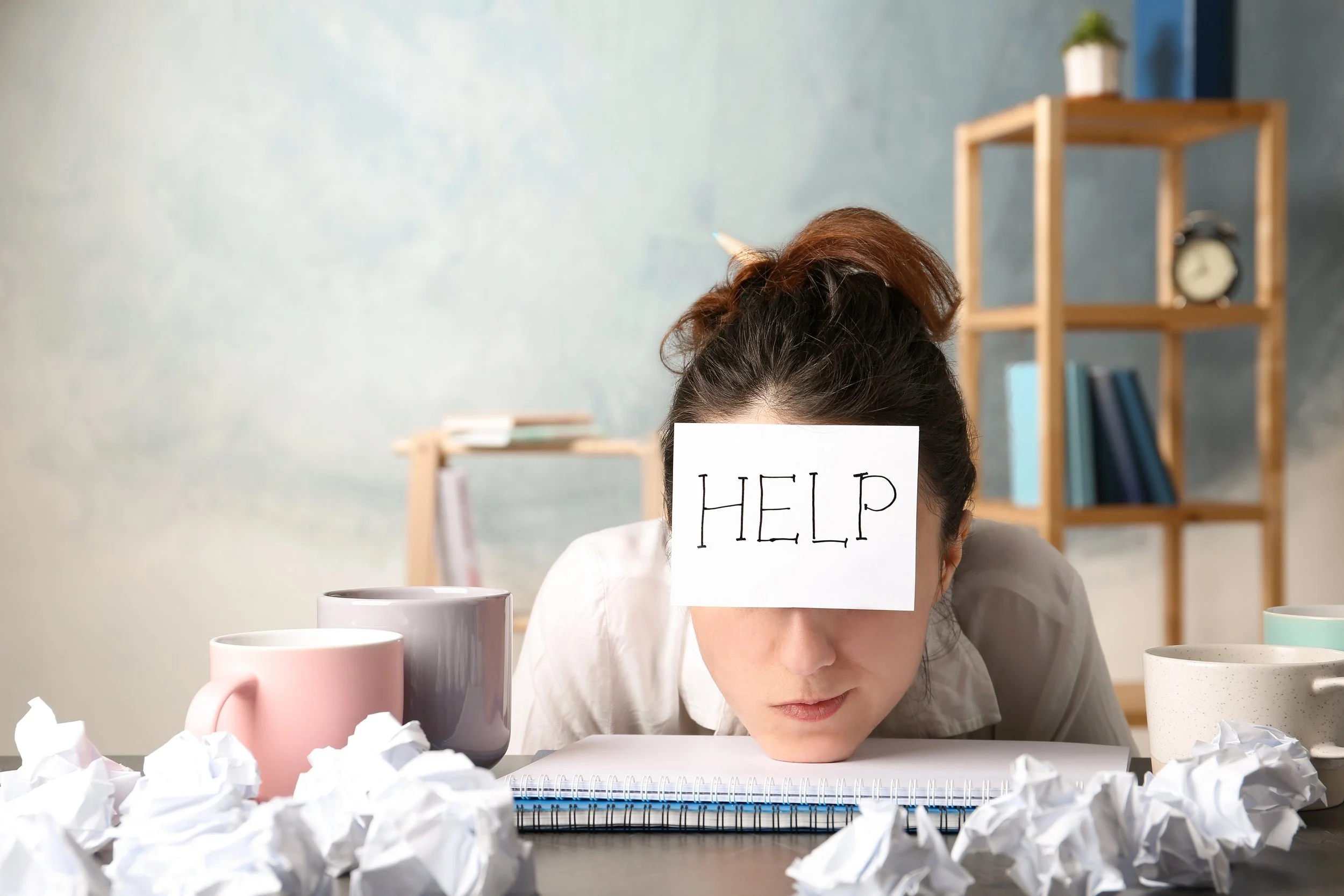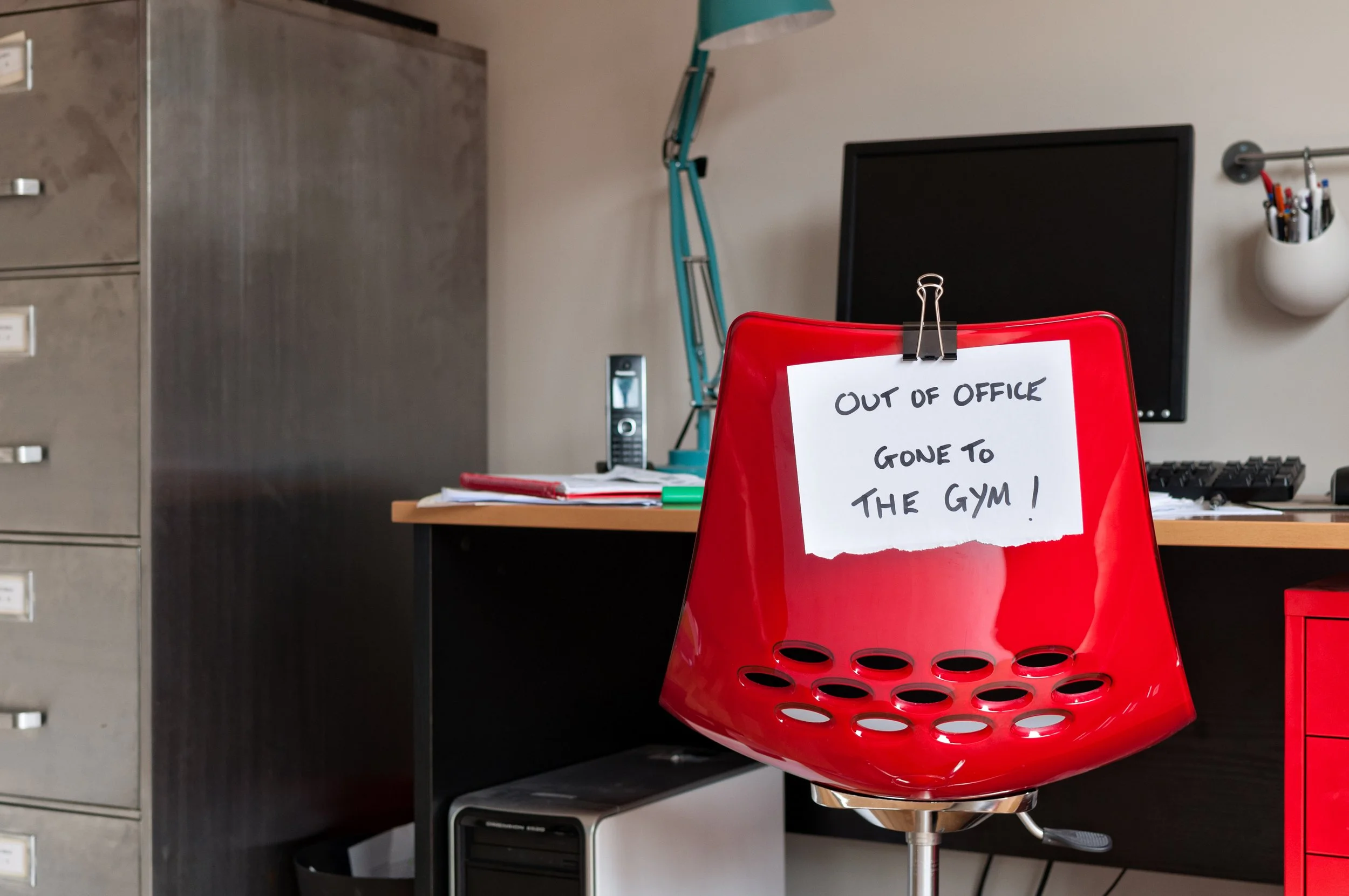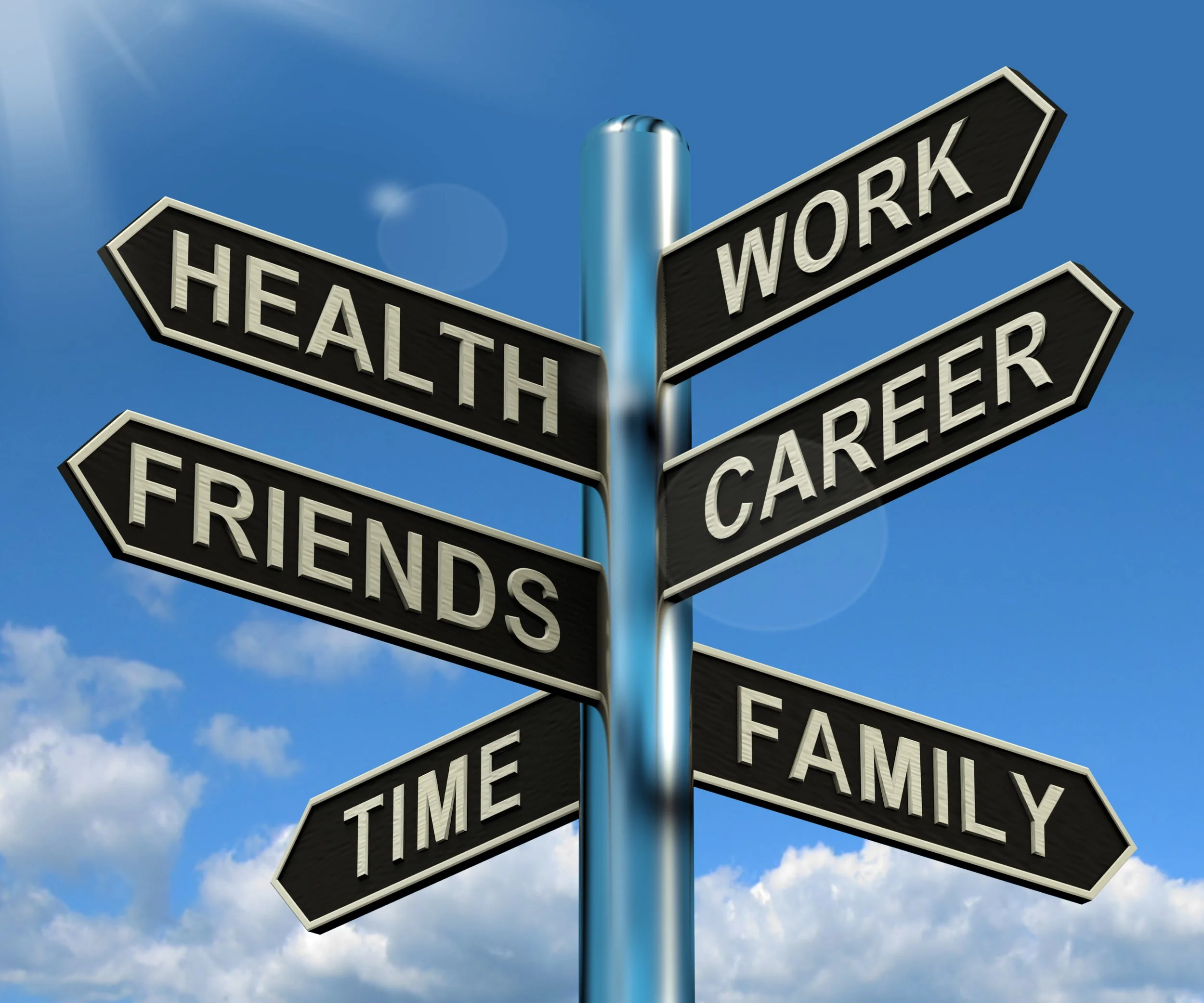Burnout And My Journey to Recovery
This is stressful! - Adobe Stock Image
Burnout, a word I feel as though we have come across quite often. Especially when it’s you who is sharing the experience of burnout, it feels so personal when it hits. I really didn’t understand the meaning of it until it started to creep silently into my life during the pandemic (and after). My first conscious experience of burnout was masked by the chaos of 'working from home'. The supposed 40 hours a week slowly was adding up to more than 60 and that's not including all the waking time spent thinking and worrying about my never-ending list of to-dos.
Covid came and went away and then there was something else that was starting to circulate in the news and in conversation circles 'the Great Resignation'. On the recovery from a strange period of history, many began to reevaluate their lives and with it naturally came reevaluating their careers. Like many I didn't have the luxury of just quitting my stressful job, but I truly started asking myself why was I just so tired all the time and was wondering if this feeling was ever gonna go away. Then it really hit me, I wasn't just exhausted all the time and tired from work, I was just burnt out!
So for this blog I will try to both reflect and share some experienced guidance— recognizing burnout, what I’ve learned, and how I’m slowly rebuilding from it. Let’s dive in.
What is Burnout?
Burnout isn’t just feeling tired or overworked—it’s a state of emotional, physical, and mental exhaustion caused by prolonged stress. First defined in the 1970s by psychologist Herbert Freudenberger, burnout often stems from work environments that demand too much and offer too little in return. This can be in the form of feeling little fulfilment, little rest, and little work life balance.
During the pandemic, burnout became a global phenomenon. We’re not gonna lie, for those that had careers and options of remote work were excited. Initially remote work was praised for its flexibility but soon after was starting to build a reputation of blurring the lines between work and life. Family rooms and dining tables became your office, and the 9-to-5 was feeling more like 24/7. In 2019 the WHO (World Health Organization) even classified burnout as an "occupational phenomenon", but COVID-19 magnified its presence like never before.
My Personal Experience with Burnout
Something’s not right - Adobe Stock Image
Looking back, I didn’t realize how deeply I was affected until I started to hear about the Great Resignation. News and media we're talking about people quitting their jobs, not just to escape work but to find something more meaningful. It made me pause and reflect: why did I feel so drained all the time? and was this from work?
The pandemic had me working from home, where there was no clear "off" button. I’d log in early, respond to emails late, and spend weekends trying to "catch up." At first, it just felt like my usual dedication to getting things done but not long after it was starting to cause me physical stress from heaviness in my head to feeling constant fatigue. I even remember looking up online about a condition where I would imagine hearing my MS Teams notification and ringing going off (Phantom Ringing or Ringxiety its an acutal thing!). This was definitely the result of what was also introduced at the time as Zoom Fatigue. Thankfully, eventually the imaginative notifications faded away and by mid-2023, I knew something had to change. I started to explore options of other career opportunities, but also was terrified potentially moving from doing something I was so used to doing and working with colleagues that I appreciated. Even while scared I still tried to persist and I also remember initiating discussions with a new potential organization that was progressing very well, but unfortunately I sabotaged the opportunity because of my fear of change.
In the eve of 2024, I came across an article by Cal Newport in The New Yorker on how were all just exhausted from our office work! It came at the right time and it felt like a verification to all the things I was feeling towards the need for a change especially in my career. In the article Newport’s argument that we need to slow down in a post-pandemic world hit me like a revelation. It was the permission I needed to step away, truly reassess my priorities, and pursue a career with more balance and meaning.
This year I came across one of Johnny Harris’s video, Why You’re So Tired, a great video where he dives into this topic, the video I believe was released in 2023, but still very relevant. He explores how societal norms and our fast-paced culture have created an environment where exhaustion feels inevitable. Definitely useful on understanding the reasons why we feel fatigued and some tips and ideas on how to counter this problem.
How to Address Burnout
Work Life Balance - Adobe Stock Image
So, how do we combat burnout? Here are some you can call 'strategies' that helped me change the way I think and look at work:
Adopting "Slow Productivity" and Self Development in your day: I was inspired by Cal Newport's work in slow productivity (book review coming soon). I also believe that setting personal goals outside of career and work is also helpful. I don't feel guilty anymore if I don't respond to a WhatsApp message instantly. I started to wake up earlier in the mornings to be able to do more meaningful things such as practicing my faith and trying to be more spiritual. I still can get caught up in endless to do lists that do need to be checked off at work, however I try to reduce the mental stress and pressure I used to put on myself. Lowering standards sometimes to save your energy and it isn't such a bad thing.
Creating Boundaries: This is a work in progress for me still, but I realized that a lot of the boundaries at work come from your work culture. In my new job I noticed that as a collective my colleagues don’t like to disturb (or be disturbed) and work after working hours, which I respect and admire. This was also a lesson for me to be more alert of and not expect my team members to constantly respond to me instantly. This type of work culture has taught me the importance of boundaries at work and made me appreciate it. I'm not saying that there won't be times where were faced with a tight deadline or urgent task, but we all need to understand that a lot of what we do can be addressed next day in the morning.
Taking Time to Reset: Being able to go away for the summer of 2024 was a turning point. Spending time away and disconnect from work allowed me to recharge and reflect on what truly matters. I also believe that taking some time off to log off and just be away from our screens and notifications is a must. Weekends and days off are non-negotiable! even after working hours should be treated the same.
It's Not That Deep!: Honestly my mindset has been shifting to realizing that there are way more things to be stressed about in this world then worrying about how if my email might come off as passive aggressive to the receiving end (I mean Kind Regards can carry multiple meanings). There's always going to be obstacles and setbacks in projects and assignments and the way to overcome them with the best solutions is to simply not stress.
Burnout is real, but it’s not impossible to recover from. It’s a sign your body tells you that something needs to change. For me, it meant stepping away, slowing down, and refocusing on what truly matters. I’m still on the journey, and not gonna lie I feel a little "crispy" around the edges still, but recovering every day. Burnout I think is a topic that will be around for some time until drastic changes are made and potentially until company policies and laws are updated and in place to support more work life balance for everyone.
As I move forward, my goal for 2025 and beyond is clear: channel my energy into meaningful projects and personal endeavors that light me up, not burn me out. What’s yours?
Let’s keep the conversation going—how are you redefining work, rest, and recovery in your life?
Love,
Mona
Something to consider:
Are you feeling the symptoms of burnout? Take a moment to pause and reflect. Ask yourself:
Are my work habits sustainable?
Am I prioritizing my well-being?
What changes can I make today to feel more fulfilled?
Feel free to also carryout a short personal test on how you priorities aspects in life using the Wheel of Life tool. You can check out the blog post here!
All it takes is to start small. Whether it’s setting boundaries, taking a weekend off, or diving into the subject of burnout and how to overcome it, the journey to recovery begins with a single step.





